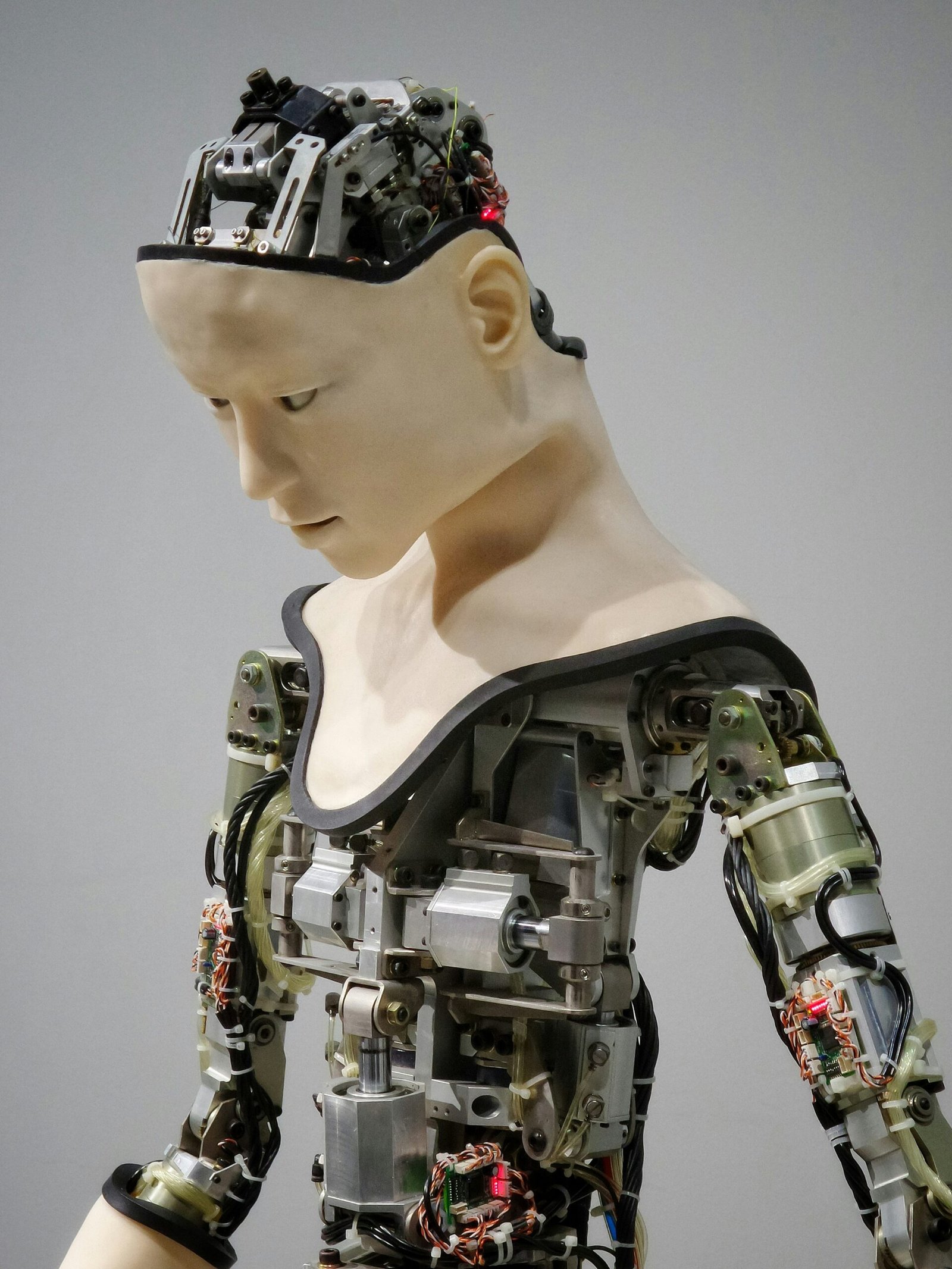Microsoft Addresses Copilot Concerns: Enhancements to Recall Feature for Improved Transparency

Photo by Dmitry Novikov on Unsplash
Introduction to Microsoft’s Copilot
Microsoft Copilot is an innovative code-generating tool developed to assist programmers in writing code more efficiently. Launched with the objective of streamlining the coding process, Copilot leverages advanced artificial intelligence (AI) and machine learning (ML) technologies. By analyzing vast repositories of code, it provides developers with intelligent code suggestions and auto-completions, significantly enhancing productivity and reducing the time spent on routine coding tasks.
Initially released in 2021, Copilot has been integrated into popular development environments such as Visual Studio Code. The tool operates by understanding the context of the code being written and offering relevant snippets that align with the developer’s current task. This capability is made possible through a collaboration between Microsoft and OpenAI, utilizing the GPT-3 model—a state-of-the-art language model known for its ability to generate human-like text based on the input it receives.
The primary purpose of Copilot is to reduce the cognitive load on developers, allowing them to focus on more complex and creative aspects of software development. By providing contextually appropriate code suggestions, it helps in minimizing errors and improving the overall quality of the code. Moreover, Copilot’s ability to learn from various coding patterns and best practices makes it a valuable tool for both novice and experienced developers.
As the demand for efficient coding tools continues to rise, Microsoft’s Copilot stands out by offering a seamless blend of AI-driven assistance and practical utility. By harnessing the power of AI and machine learning, Copilot represents a significant step forward in the evolution of coding tools, promising to transform the way developers approach their work.
The integration of AI into software development has been met with both enthusiasm and apprehension. Microsoft’s Copilot, while groundbreaking, has not been immune to criticism from the developer community. A primary concern that has surfaced is the quality of the code generated by Copilot. Developers have reported instances where the AI’s suggestions were not only suboptimal but also introduced significant inefficiencies into the codebase. For example, there have been cases where Copilot recommended outdated libraries or redundant code snippets, which could potentially lead to performance bottlenecks.
Another critical issue revolves around the potential security vulnerabilities that AI-generated code might introduce. The developer community has highlighted several instances where Copilot’s suggestions included insecure coding practices. For instance, there have been reports of Copilot generating code that lacked proper input validation, a fundamental security measure. Such oversights can lead to severe vulnerabilities, making applications susceptible to common attacks like SQL injection or cross-site scripting (XSS).
Beyond technical concerns, the ethical implications of AI-generated code have also sparked debate. Developers worry about the accountability and ownership of code produced by an AI. If a piece of AI-generated code leads to a security breach or a malfunction, the question arises: who is responsible? Moreover, there are concerns about the potential misuse of Copilot for generating malicious code. While Microsoft has implemented safeguards to minimize this risk, the possibility of such misuse cannot be entirely ruled out.
Specific examples illustrate these concerns vividly. In one instance, a developer reported that Copilot suggested a piece of code that inadvertently exposed sensitive user data. Another developer highlighted a scenario where the AI-generated code led to a system crash due to improper error handling. These examples underscore the need for rigorous oversight and review of AI-generated code to ensure its reliability and security.
Understanding the Recall Feature
The recall feature in Microsoft Copilot is designed to enhance the coding experience by offering relevant past suggestions and code snippets based on the developer’s current coding context. This feature is particularly beneficial in streamlining the development process, allowing programmers to work more efficiently by minimizing the time spent searching for previously used or relevant code segments.
At its core, the recall feature functions by analyzing the developer’s ongoing coding activities and referencing a repository of past interactions and code snippets. When a developer is working on a new piece of code, Copilot’s recall mechanism scans through the historical data to identify snippets that align closely with the current task. These suggestions are then presented to the developer, integrated seamlessly into the development environment. This not only aids in maintaining consistency within the project but also reduces the cognitive load on the developer, freeing them to focus more on the creative aspects of coding.
The primary purpose of the recall feature is to provide a more intuitive and context-aware coding assistant. By leveraging machine learning algorithms and pattern recognition, Copilot can discern the intent behind the developer’s actions and offer pertinent suggestions that have been vetted through previous usage. This ensures that the code suggested is not only syntactically correct but also contextually appropriate, thereby increasing the overall efficiency and effectiveness of the development process.
Additionally, the recall feature helps in maintaining a coherent development workflow. It keeps track of the evolving project requirements and provides quick access to code segments that have been used in similar contexts, which can be particularly useful in large-scale projects where code reuse and consistency are crucial. By doing so, Copilot acts as a reliable assistant, bridging the gap between past and current coding efforts, and ensuring a smoother and more productive development experience.
Transparency Challenges
One of the primary concerns surrounding the recall feature in Microsoft’s Copilot is the transparency of its operations. Developers and industry experts have highlighted several issues, primarily revolving around the lack of clarity in how suggestions are generated. The algorithm that drives Copilot’s recommendations remains something of a black box, leading to questions about the sources from which code snippets are derived and the criteria used to rank these suggestions.
Furthermore, there is an ongoing debate about the potential biases that could be embedded within the system. Since Copilot learns from a vast corpus of public code, there is a legitimate concern that it might inadvertently propagate outdated programming practices or favor certain coding styles over others. This could lead to a homogenization of coding practices, stifling creativity and innovation within the developer community.
Another critical issue raised by developers pertains to the origin of the code snippets suggested by Copilot. Without clear documentation or attribution, it is challenging to verify the reliability and relevance of the suggested code. This lack of transparency can result in the use of outdated or insecure code, posing significant risks to software projects. Moreover, the absence of attribution raises ethical questions about intellectual property and the fair use of open-source contributions.
The developer community has not shied away from expressing their concerns. Feedback from various forums and industry conferences indicates a strong demand for improved transparency. Developers are calling for more detailed explanations of how Copilot processes input, prioritizes suggestions, and ensures the quality and security of the code it recommends. Such transparency is crucial for building trust in the tool and ensuring it serves as a reliable aid rather than a potential liability.
In response to these transparency challenges, industry experts have suggested several possible enhancements. These include the implementation of more robust documentation practices, the inclusion of source attributions for suggested code snippets, and the incorporation of mechanisms to flag potentially insecure or outdated code. By addressing these issues, Microsoft can enhance Copilot’s utility and foster greater confidence among its users.
Microsoft has taken significant steps to address the concerns raised by users regarding the Copilot tool, particularly focusing on the enhancements to the recall feature to ensure improved transparency. In response to the feedback from the developer community, Microsoft has issued several statements and announcements that underscore their commitment to refining the tool and meeting user expectations.
One of the key actions taken by Microsoft includes the deployment of an updated version of Copilot, which incorporates a more robust recall feature. This enhancement is designed to allow developers to better track and understand the suggestions provided by Copilot, thereby fostering a more transparent and efficient coding experience. Microsoft has emphasized that these improvements are directly influenced by user feedback, demonstrating their dedication to listening and responding to the needs of their audience.
In a recent statement, a Microsoft spokesperson highlighted the importance of user feedback in driving these enhancements: “We deeply value the insights and feedback from our developer community. The recent updates to Copilot, particularly the recall feature, are a testament to our ongoing commitment to improve our tools and ensure they align with the expectations and requirements of our users.” This statement reflects Microsoft’s proactive approach in addressing concerns and enhancing the overall functionality of Copilot.
Furthermore, Microsoft has outlined a roadmap for future updates, ensuring continuous improvements to Copilot. This roadmap includes plans for more detailed user documentation and additional features aimed at further increasing transparency and usability. By openly communicating their plans and progress, Microsoft aims to build trust and maintain a strong relationship with the developer community.
Through these concerted efforts, Microsoft reaffirms its dedication to refining Copilot based on user input, ensuring the tool not only meets but exceeds the expectations of developers. The enhancements to the recall feature are a crucial step in this ongoing process, reflecting the company’s commitment to delivering transparent, user-centric solutions.
Improvements to the Recall Feature
Microsoft has introduced a series of enhancements to its Copilot recall feature, aimed at fostering greater transparency and usability for developers. One of the most significant updates includes the clearer documentation of how suggestions are generated. This improvement ensures that users can understand the underlying mechanisms driving Copilot’s recommendations, thereby enhancing trust and enabling more informed decision-making during the development process.
Additionally, Microsoft has implemented advanced filtering techniques to refine the suggestions provided by Copilot. By leveraging sophisticated algorithms, the system now offers more relevant and contextually appropriate suggestions, reducing the likelihood of irrelevant or erroneous code snippets being proposed. This enhancement not only streamlines the coding experience but also minimizes potential disruptions in the development workflow.
Moreover, the recall feature has been seamlessly integrated with existing development tools and workflows, ensuring compatibility and ease of use. This integration allows developers to effortlessly incorporate Copilot’s suggestions into their projects without necessitating significant adjustments to their established processes. As a result, the enhancements contribute to a more cohesive and efficient development environment.
These improvements collectively represent Microsoft’s commitment to enhancing Copilot’s utility while addressing user concerns. By prioritizing transparency, relevance, and integration, Microsoft aims to empower developers with a more reliable and user-friendly coding assistant. These advancements not only improve the immediate coding experience but also contribute to long-term productivity and satisfaction among developers.
Impact on Developers
The recent enhancements to the Copilot recall feature are poised to significantly impact developers who rely on this tool. By addressing concerns related to transparency and the accuracy of code suggestions, Microsoft aims to foster increased trust among its user base. This trust is essential for developers as they integrate Copilot into their daily workflows, allowing them to focus more on complex problem-solving rather than routine coding tasks.
One of the primary benefits of these changes is the potential for improved code quality. With enhanced recall features, developers can expect more accurate and contextually appropriate code suggestions. This not only speeds up the coding process but also reduces the likelihood of introducing bugs or security vulnerabilities. As a result, the overall robustness of software projects is likely to improve, facilitating smoother development cycles and more reliable applications.
Enhanced security is another critical advantage. By refining the recall mechanisms, Microsoft is likely minimizing the risk of inadvertently suggesting insecure or outdated code patterns. This is particularly crucial in today’s development landscape, where security breaches can have severe repercussions. Developers can take comfort in knowing that the suggestions they receive are vetted for modern security practices, thereby reducing the need for extensive manual code reviews.
However, despite these promising advancements, challenges remain. One ongoing issue is ensuring that Copilot can effectively handle a wide variety of programming languages and frameworks. While the tool has shown proficiency in popular languages, there is still room for improvement in its versatility. Moreover, developers may encounter difficulties in extremely specialized or niche areas where Copilot’s training data may be less comprehensive.
Additionally, the ethical implications of using AI-generated code continue to be a topic of discussion. Developers must remain vigilant about the originality of their code and the potential for inadvertently duplicating copyrighted material. While enhanced recall features can mitigate some of these concerns, they do not entirely eliminate the need for human oversight.
Future Outlook and Developments
As artificial intelligence continues to evolve, tools like Microsoft’s Copilot are poised to become increasingly sophisticated. The future of AI-driven code generation tools is promising, with significant advancements expected in the coming years. Microsoft is actively refining Copilot to enhance its functionality and address user concerns, particularly in areas such as transparency, accuracy, and ethical use of AI in software development.
One of the key areas of focus for Microsoft is improving the recall feature to ensure that developers can better understand the origins and context of the code suggestions provided by Copilot. This enhancement aims to foster greater trust and reliability in the tool, making it a more integral part of the development workflow. By providing clearer insights into how and why certain code snippets are recommended, Microsoft hopes to mitigate concerns related to the provenance and appropriateness of the suggestions.
Looking ahead, we can anticipate further integration of Copilot with other Microsoft products and services, creating a more cohesive and seamless development environment. Upcoming features may include more advanced machine learning algorithms that offer even more precise and contextually relevant code suggestions. Additionally, Microsoft is likely to focus on expanding the languages and frameworks supported by Copilot, making it a versatile tool for a broader range of developers.
Beyond technical enhancements, there are broader implications for the software development industry. The adoption of AI-driven code generation tools like Copilot could significantly alter the landscape, making it faster and easier to write code, thereby increasing productivity and reducing time to market. However, it also raises important questions about the future role of human developers and the need for ongoing education and adaptation to new technologies.
In conclusion, the future of Copilot and similar AI-driven tools looks bright, with continuous advancements and refinements on the horizon. As Microsoft continues to innovate and address user concerns, we can expect Copilot to become an even more powerful and reliable asset for software developers worldwide.






